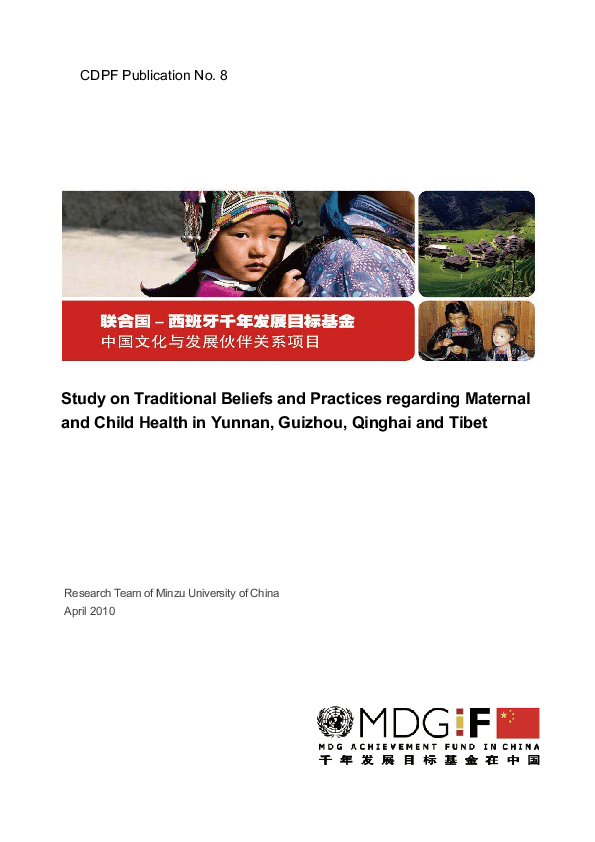The study was undertaken in the provinces of Guizhou, Yunnan, Qinghai and Tibet and considered the cultural beliefs and practices of selected representatives of six ethnic minority groups - Miao, Dong, Jingpo, Dai, Hui and Tibetans - in relation to key aspects of maternal and child health. It was designed to identify enabling factors that contribute to the uptake of MCH services, as well as any harmful traditional practices or other barriers that impede maternal and child health and utilization of related services. Information was gathered in relation to religious and traditional beliefs and practices in general, as well as attitudes, beliefs and practices in relation to health and nutrition of pregnant women and children. The research team was tasked to identify and highlight specific practices, beliefs or attitudes – from either demand or supply side - which could be targeted in MCH guidelines, policy and service delivery, in order to enhance access to and utilization of MCH services, thus contributing to improved health targets.

